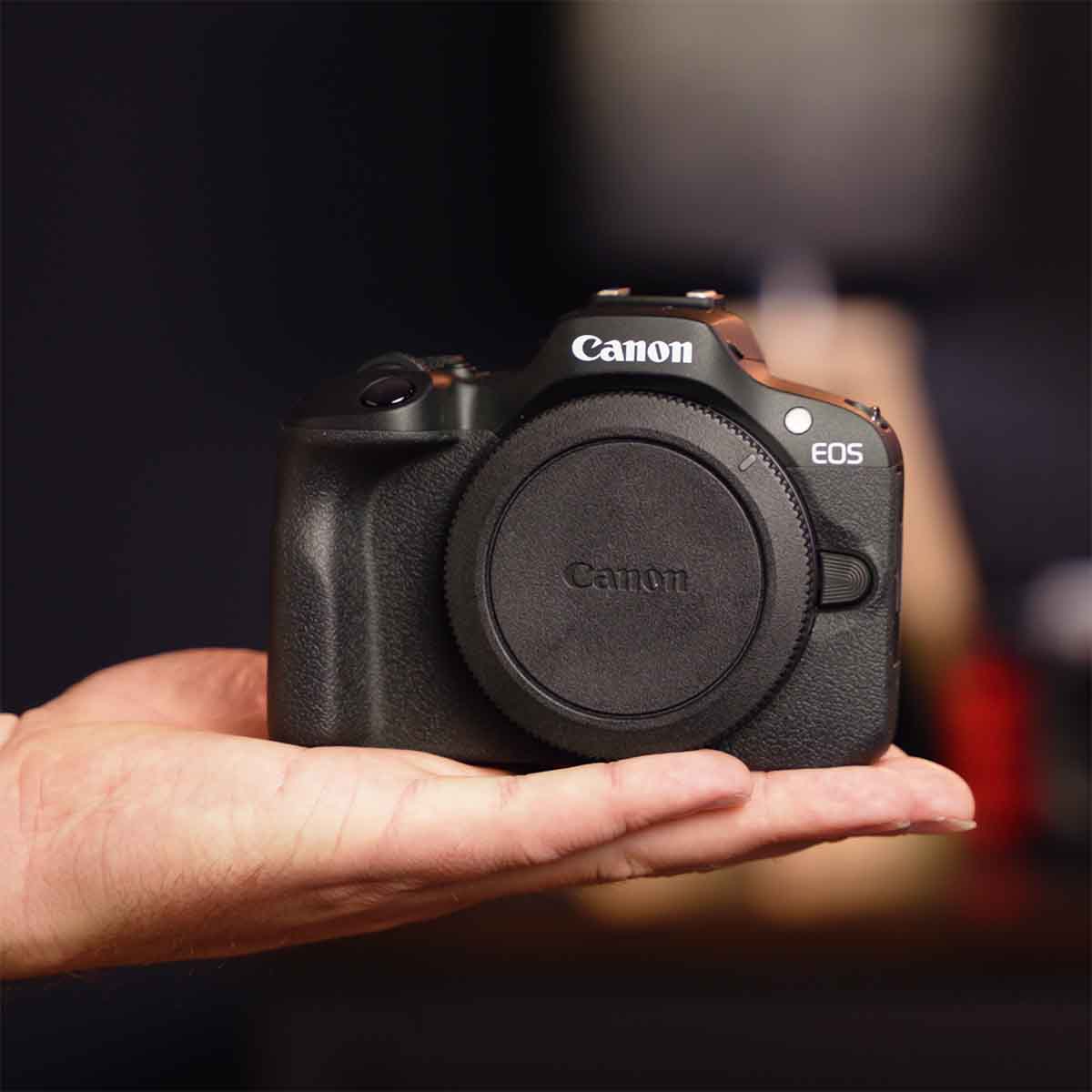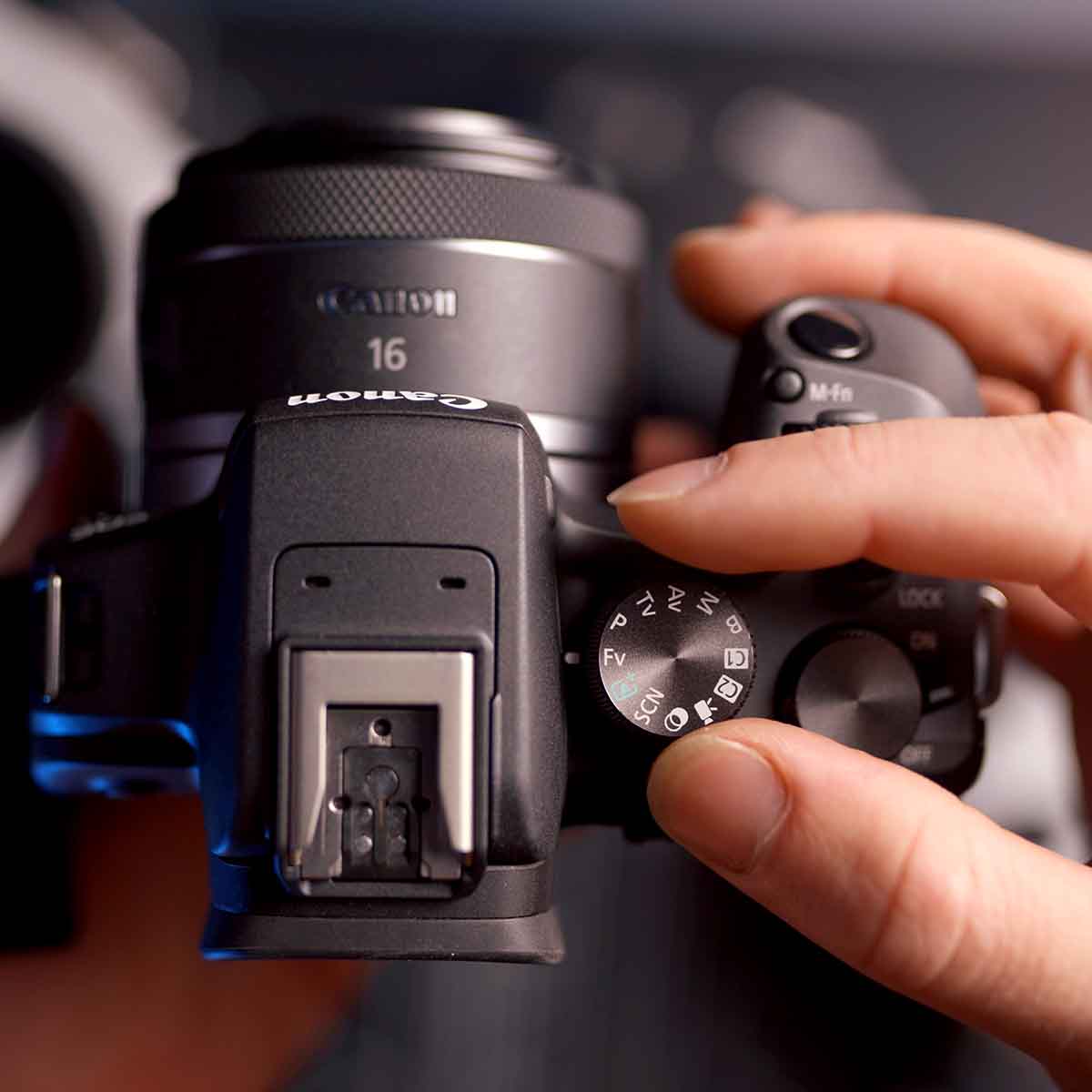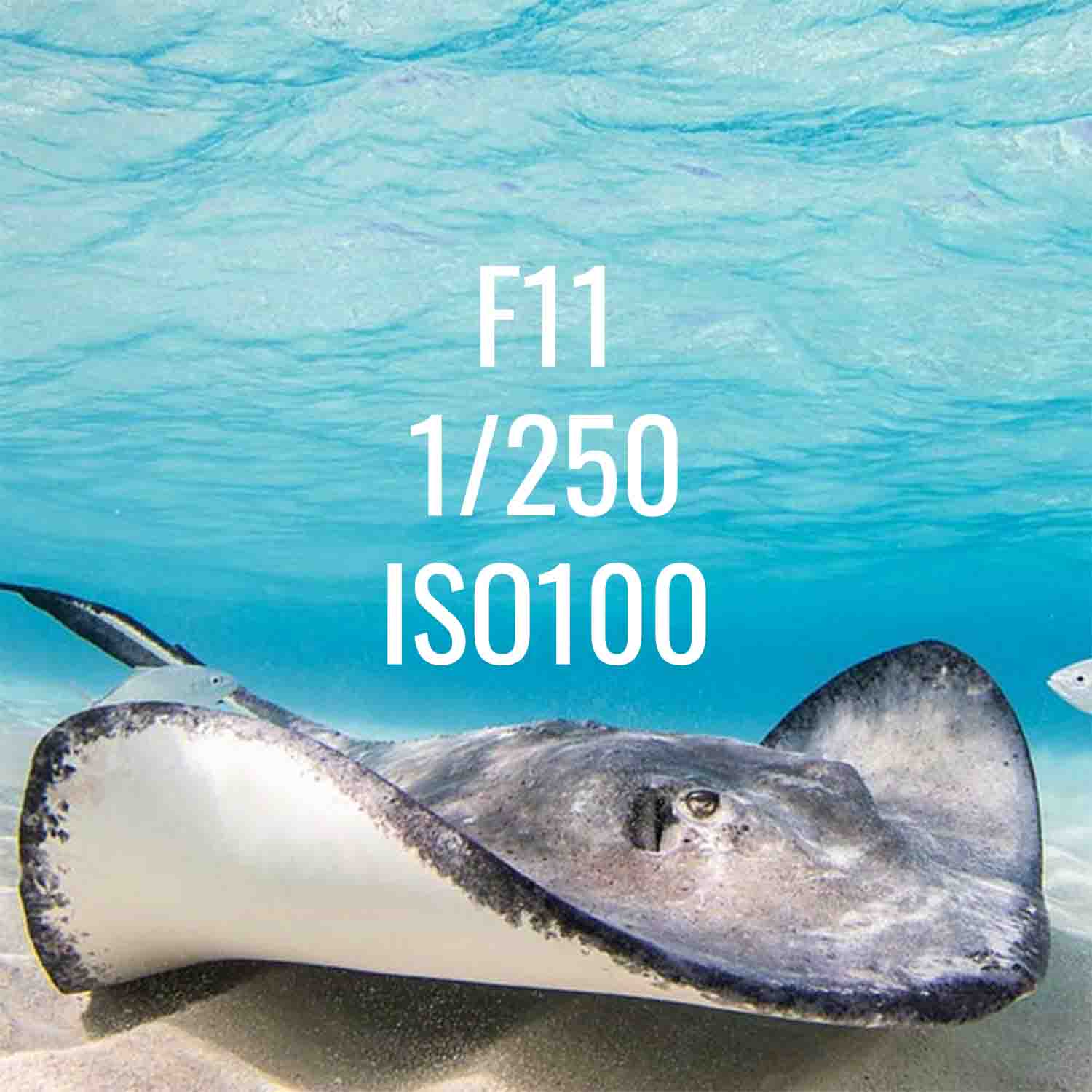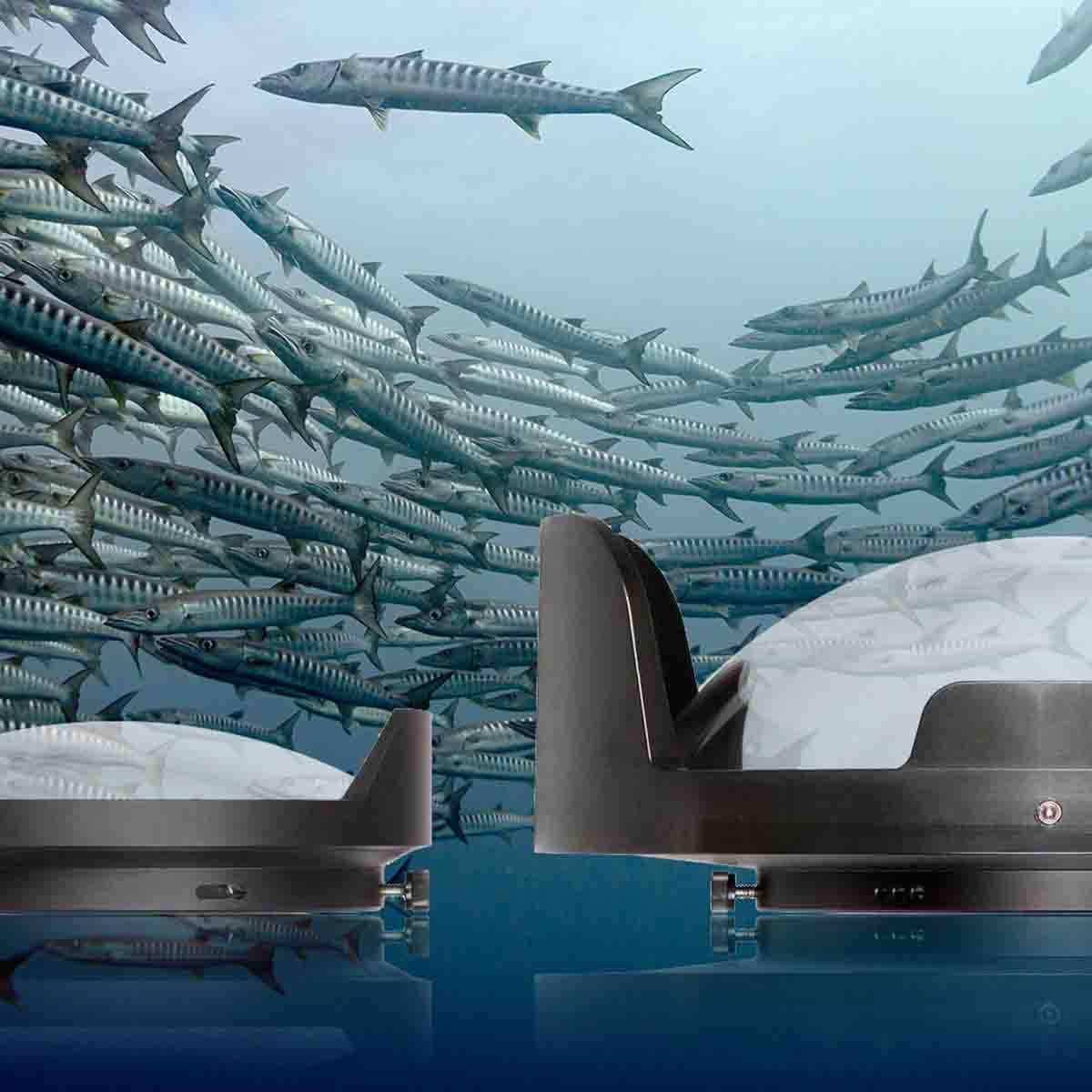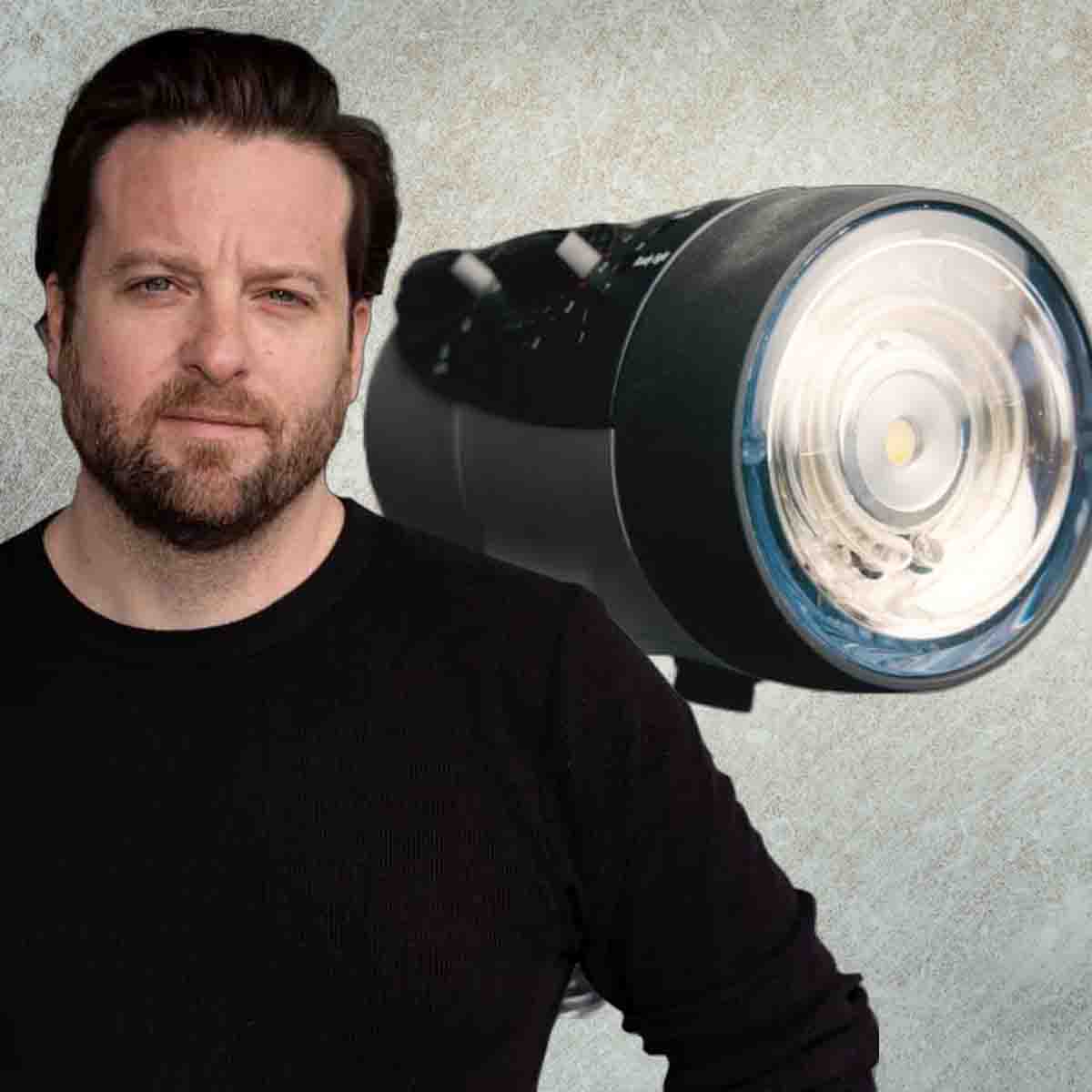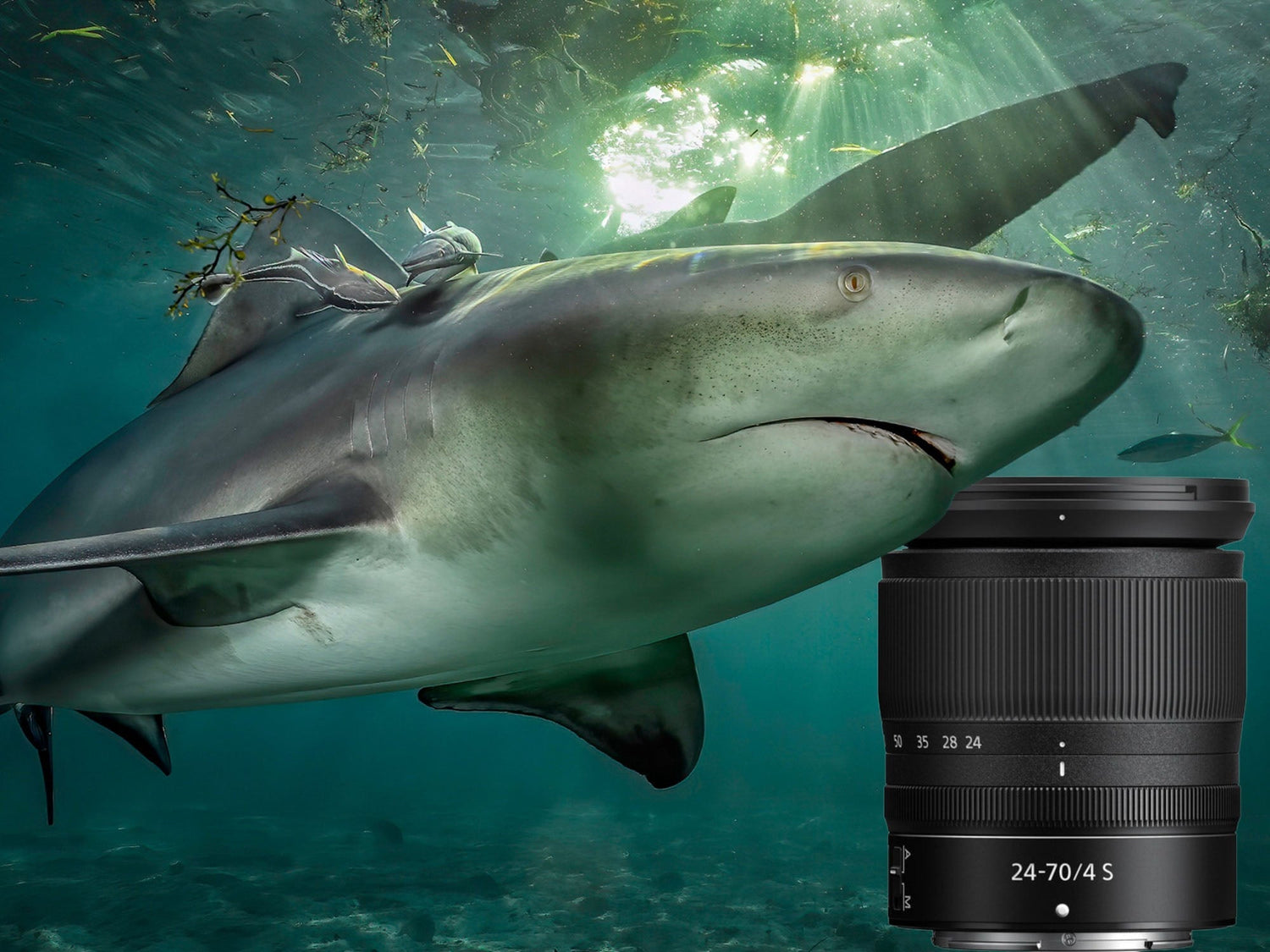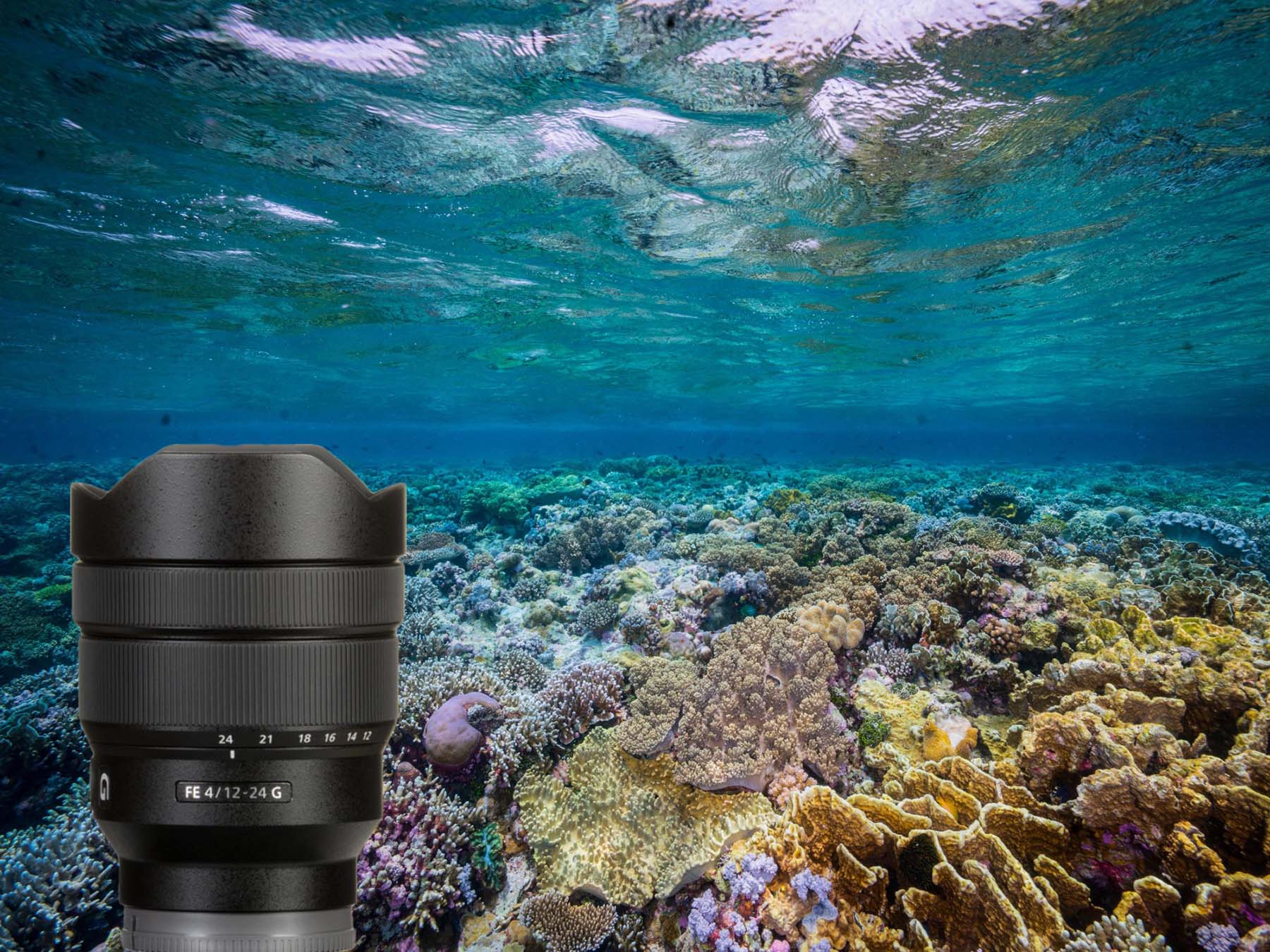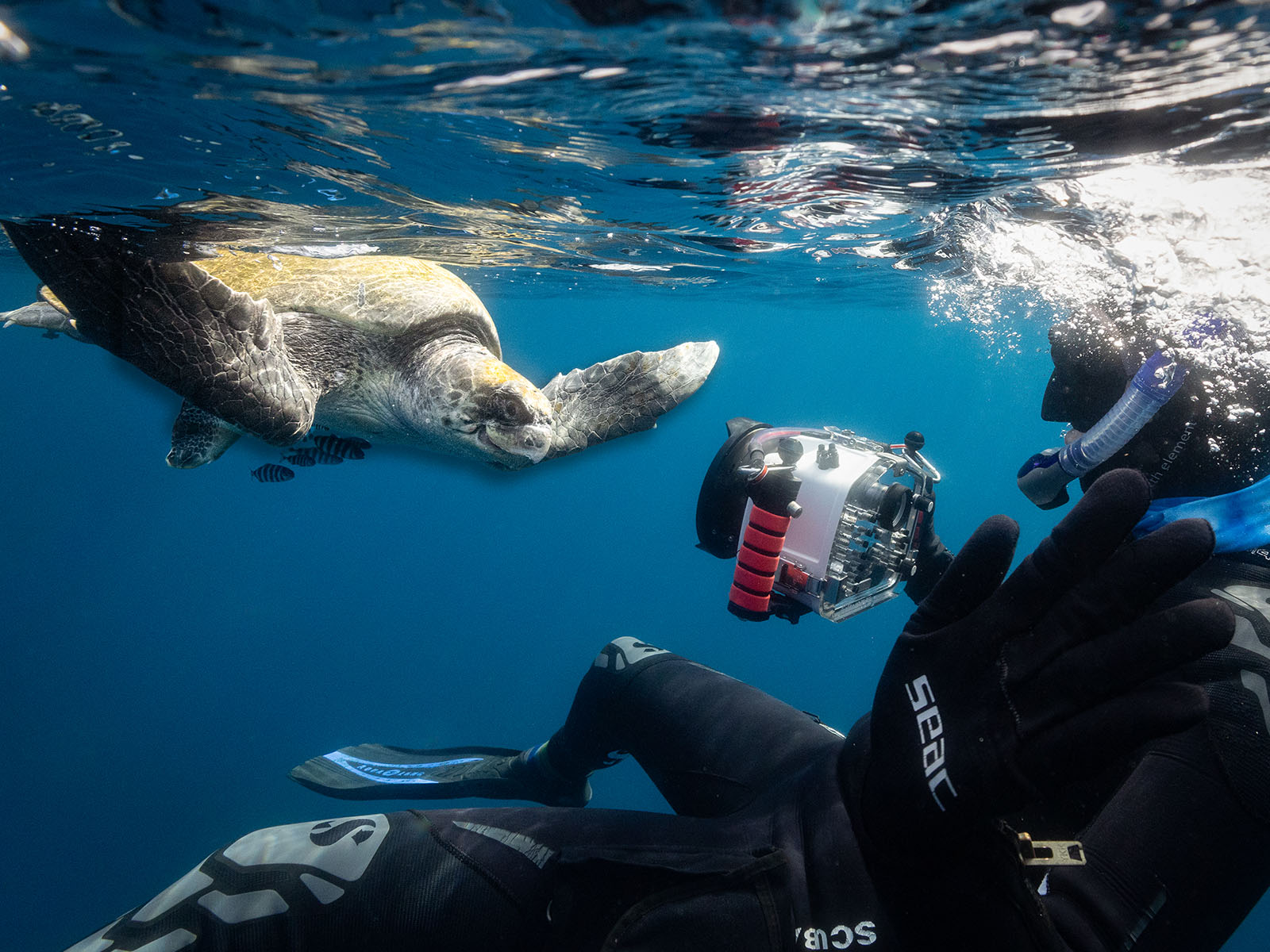By Glenn Ostle
Mid-range zoom rectilinear lenses are often favored by photographers working on land because of the versatility they provide. This need for versatility is even more important underwater when you are not sure if you will need a wide angle or a close-up lens, and don’t want to fiddle with heavy, cumbersome wet lenses.
One all around lens that works especially well in this situation is the Nikon Z 24-70mm f/4 S as it offers an economical way to shoot a broad range of subjects, from very small to fairly large critters or objects; wide angle views one moment, closeups the next, and everything in between.

In this colorful scene from the Maldives, the Nikon Z 24-70mm f/4 S lens provided a sharp image corner-to-corner behind an 8” dome port. // Nikon Z6 • 37mm • 1/60 • f/6.3 • ISO 200 © Glenn Ostle
First announced in 2018, it was the first zoom lens made for the Nikon Z system and since then has been an essential part of the Nikon lineup. It requires no adapters when used with Nikon mirrorless systems such as the Z6, Z7, Z8 and Z9.
Empowered by the Z system's larger mount and cutting-edge imaging advancements, the Z 24-70mm f/4 S lens delivers great sharpness, vibrance, and even lighting across the entire frame.

When photographing sharks, the action tends to shift quickly from long shots of sharks to close ups as those same sharks swim close to the camera. A zoom is ideal for reacting to the changes in distance. // Nikon Z6 • 31mm •1/250• f/9• ISO 450 © Glenn Ostle
For large subjects the Z 24-70mm f/4 S offers wide focal lengths, and for small subjects it provides close focus of less than 1 foot (11.8-inches).
Other features of the Z 24-70mm f/4 S lens include:
- Aperture: f/4 – f/22
- Filter size: 72mm
- Dimensions: 3.1 in. (77.5 mm) x 3.5 in. (88.5 mm)
- Weight: 17.7 oz. (500 g)

Some of the rocks and walls at Los Islotes, Mexico, are dark and covered with colorful cup coral which contrasts with the bright shiny fish. // Nikon Z6 • 24mm • 1/180 • f/8 • ISO 400 © Glenn Ostle

The sea lions that frolic in the Sea of Cortez are fast swimmers and can quickly change from being in the distance, to being right in front of you peering into your lens. Once again, a wide zoom helps capture all the action. // Nikon Z6 • 24mm • 1/125 • f/10 • ISO 320 © Glenn Ostle
Nikon has recently announced two new Z 24-70mm models including the Z 24-70mm f/2.8 S for softer backgrounds when shooting wide open, as well as the Z 24-70mm f/2.8 S II billed as “the world's first 24-70mm f/2.8 to feature an internal zoom design, which contributes to upgraded weather resistance, faster AF performance, and a 16% reduction in weight compared to the previous generation.” Both new models come at a steeper price than the original but offer a significant number of improvements.
If you are looking for a rectilinear Z-mount lens for underwater versatility, the 24-70mm f/4 S or the new f/2.8 S or f/2.8 S II models are great choices.
Keep scrolling for more images taken with this lens.
Reach out to us today if you have any questions about choosing equipment or setting up the Nikon Z 24-70mm f/4 S lens.

A divemaster from Neal Watson's Scuba Center hand feeds a large tiger shark during a feeding in Bimini. The Nikon Z 24-70mm f/4 S lens captured this wide action and was ready a moment later when the large sharks swam quite close by. // Nikon Z6 • 39mm • 1/200 • f/8 • ISO 100 © Glenn Ostle

The Nikon Z 24-70mm f/4 S lens zoom capability allowed me to focus on this small squirrel fish peeking through the reef. // Nikon Z6 • 55mm • 1/180 • f/11 • ISO 400 © Glenn Ostle

As this nurse shark swam directly towards me, I was able to zoom in to frame it. // Nikon Z6 • 44mm • 1/100 • f/7.1 • ISO 200 © Glenn Ostle

By zooming in with the Z 24-70 f/4 S lens allowed me to capture this photo of a very small anemone and fish against a dark wall. // Nikon Z6 • 70mm • 1/125 • f/8 • ISO 500 © Glenn Ostle

These shots shows the zoom range of the Z 24-70mm f/4 S. The top photo shows the coral head zoomed out, while the bottom photo shows the same reef fully zoomed in. // Nikon Z6 • 24mm (top), 70mm (bottom) • 1/180 • f/13 • ISO 400 © Glenn Ostle

This photo was taken using the Z 24-70mm f/4 S and demonstrates the ability of the lens with split shot photos. // Nikon Z6 • 24mm • 1/125 • f/19 • ISO 250 © Glenn Ostle
Additional Viewing
Top 3 Best Lenses for Nikon Full Frame Mirrorless Underwater [VIDEO]
Nikon Z 24-70mm f/4 Zoom Gear Installation // Ikelite 200DL Underwater Housing [VIDEO]
Cousteau's Aquarium | Sea of Cortez with the Nikon Z6
The Aquarium of the World: Diving Mexico's California Baja Sur
Gray Whales, Blue Water | Photographing Humpback Whales in Moorea
Just Add Light: Enhancing Underwater Photography with Colored Lighting
 Glenn Ostle is an Ikelite Ambassador. He and his partner, Pam Hadfield, live in Charlotte, North Carolina, and travel the world to scuba dive and photograph wildlife. His articles have appeared in a number of publications and his photos have appeared on the covers of a number of magazines. His photos can be viewed at featherandfins.smugmug.com, and he posts photos regularly on Instagram @ostleglenn. Read more...
Glenn Ostle is an Ikelite Ambassador. He and his partner, Pam Hadfield, live in Charlotte, North Carolina, and travel the world to scuba dive and photograph wildlife. His articles have appeared in a number of publications and his photos have appeared on the covers of a number of magazines. His photos can be viewed at featherandfins.smugmug.com, and he posts photos regularly on Instagram @ostleglenn. Read more...



